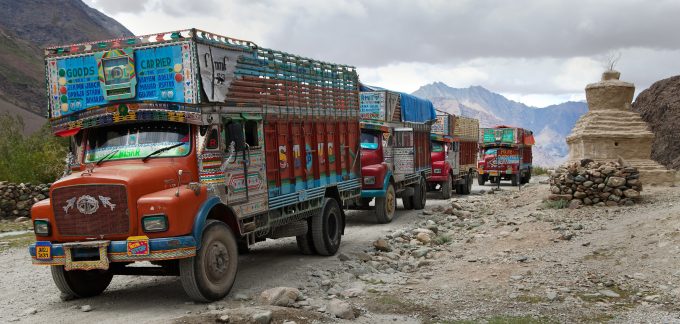India ready to lower US tariffs in exchange for concessions
India has agreed to the US Terms of Reference for the bilateral trade agreement, after ...

India is set to further simplify its road transport sector after being approved to use the UN TIR Convention.
The decision allows India to harmonise its transport with global standards and boost overland trade and integration across south Asia.
In combination with the likely implementation of the federal Goods and Services Tax (GST) in July, costs should reduce while transport will get faster.
TIR, the streamlined international system for the movement of goods by road, will support India’s international North-South transport corridor, a key trade ...
Asia-USEC shippers to lose 42% capacity in a surge of blanked sailings
Why ROI is driving a shift to smart reefer containers
USTR fees will lead to 'complete destabilisation' of container shipping alliances
New USTR port fees threaten shipping and global supply chains, says Cosco
Transpac container service closures mount
Outlook for container shipping 'more uncertain now than at the onset of Covid'
DHL Express suspends non-de minimis B2C parcels to US consumers

Comment on this article